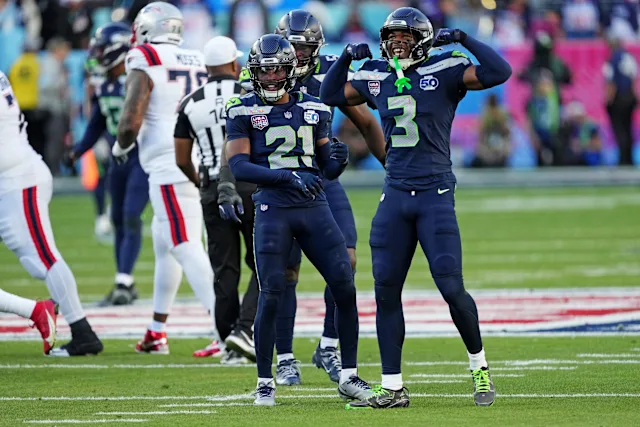When it comes to sports, athletes know that training and dedication are essential. But what many may overlook is the role that nutrition plays in enhancing performance and aiding recovery. Sports nutrition focuses on the dietary needs of athletes, helping them fuel their bodies to achieve their best. In this blog post, we’ll explore how proper nutrition maximizes performance and supports recovery after intense activities.
Understanding Sports Nutrition
Sports nutrition encompasses the dietary practices that enhance athletic performance, including the right balance of carbohydrates, proteins, and fats. Understanding these macronutrients is the first step toward achieving peak performance.
But what does each macronutrient do? Carbohydrates are converted into glucose, fueling your muscles during activity. Proteins are crucial for repairing tissues, while fats provide long-lasting energy. Striking the right balance among these elements is key. For example, an athlete who overemphasizes protein might miss out on the quick energy provided by carbs, leading to decreased performance. Thus, the journey begins with understanding what your body needs.
In addition to macronutrients, micronutrients—vitamins and minerals—also play a critical role. Every nutrient counts from calcium, which strengthens bones, to iron, which helps transport oxygen in the blood. Focusing on a colorful variety of foods can help athletes meet all their nutritional needs.
The Importance of Carbohydrates
Carbohydrates are athletes’ primary energy source. We’ll examine how they fuel workouts and why timing your carb intake is crucial for maximizing performance.
Consuming complex carbs before a race or intense workout can provide the extra boost your body craves. Think whole grain pasta or brown rice. On the flip side, quick energy sources like bananas or energy gels can help during the activity. Timing is everything since the body metabolizes carbohydrates at different rates. In essence, knowing when to eat carbs can be just as important as knowing what to eat.
Moreover, the recovery period after strenuous exercise is the perfect time to replenish glycogen stores with carbohydrates. Research suggests that consuming carbs within 30 minutes post-exercise can significantly improve recovery. This is when the body is more efficient at utilizing those carbs. So remember, it’s not just about fuel; it’s about timing that fuel!
Lastly, it’s vital not to demonize carbs. They deserve their place in any athlete’s diet, as they have more benefits than drawbacks. A well-rounded diet that includes them can lead to improved endurance and overall performance.
The Power of Protein in Recovery
Protein plays a vital role in muscle repair and recovery. This section will explore how athletes can effectively incorporate protein into their diets to enhance recovery times.
After a grueling workout, muscle fibers endure microscopic tears and damage, which is where protein comes into play. It serves as the building block for muscle recovery. For athletes aiming to gain muscle or enhance recovery, about 1.6 to 2.2 grams of protein per kilogram of body weight daily is recommended. But remember, quality matters, too! Sources like lean meats, fish, legumes, nuts, and dairy products can significantly support your recovery efforts.
Moreover, protein synthesis—the process by which the body builds new proteins—occurs more efficiently when protein is consumed throughout the day. Spreading protein into multiple meals can yield better results than a large intake. For instance, incorporating a protein-rich snack before bed, such as Greek yogurt or cottage cheese, can aid overnight muscle recovery.
Also, consider plant-based proteins if you are looking for alternatives. Foods like quinoa, lentils, and chickpeas are powerful sources. They support muscle recovery and offer additional health benefits like fiber and antioxidants. In short, integrating a balanced protein intake is crucial for enhancing recovery and ensuring long-term performance.
Fats: The Forgotten Macronutrient
Healthy fats are essential for overall health and provide a valuable energy source for longer endurance events. We’ll discuss the different types of fats and how they fit into an athlete’s diet.
Fats are often misunderstood but play an irreplaceable role in our diets. They are crucial for hormone production, nutrient absorption, and providing concentrated energy. When preparing for extended workouts or competitions, incorporating healthy fats from sources like avocados, olive oil, and nuts can help sustain energy levels. Especially in endurance sports, a diet balanced with healthy fats can provide the stamina needed to perform well.
Omega-3 fatty acids in fish like salmon and flaxseeds are particularly noteworthy due to their anti-inflammatory properties. Athletes can benefit from reduced muscle soreness and faster recovery times by including these healthy fats in their routines. It’s not just about enhancing performance; it’s also about protective health.
However, how much fat is optimal? Aiming for 20-35% of your daily caloric intake from healthy fats can offer a foundation for performance and recovery. So, let’s not forget about this vital macronutrient; it’s time we give fats their deserved place on the plate!
Hydration: More Than Just Water
Optimal hydration is critical for peak performance. We’ll explore how hydration affects performance and recovery, and what athletes should consider to stay properly hydrated.
Water is just the tip of the iceberg. While drinking enough water is essential, electrolytes like sodium, potassium, and magnesium play significant roles in maintaining fluid balance and preventing cramps. Athletes should aim to drink water before, during, and after their workouts, but also consider replenishing lost electrolytes. For instance, adding a sports drink or consuming electrolyte-rich foods can make a big difference during extended sessions.
Additionally, thirst is not always a reliable indicator of hydration status, especially during intense exercise. So, establishing a routine for hydration is crucial. A good practice is to check urine color; a pale straw color usually indicates proper hydration levels. The goal should be to hydrate proactively rather than reactively drink water when feeling thirsty.
In conclusion, hydration is a critical aspect of sports nutrition that directly impacts performance and recovery. Educating yourself on proper hydration strategies can greatly influence the outcome of any athletic endeavor.
Timing is Key: Meal Frequency and Timing Strategies
This section will explore the significance of meal timing and frequency, including pre- and post-workout nutrition strategies for maximizing performance and recovery.
Understanding when to eat is just as vital as knowing what to eat. The pre-workout meal fuels your body for the challenges ahead, while the post-workout meal begins the recovery process. Ideally, a meal rich in carbs and protein should be consumed within two hours after exercising to facilitate muscle rebuilding.
Furthermore, some athletes prefer smaller, more frequent meals throughout the day rather than three large meals. This can help maintain energy levels and prevent fatigue. Eating every 2-3 hours can stabilize blood sugar and provide the necessary nutrients for recovery. Smart snacking between meals is also a good strategy, with options like trail mix or energy bars offering convenience and nourishment.
Ultimately, the right timing combined with the right foods can create an effective strategy for performance enhancement and recovery. Everyone’s body is different, so observing how your body responds to different approaches can help you find the best fit.
Supplements: Do They Really Help?
With a wide array of supplements available, knowing which ones are beneficial can be challenging. We’ll discuss common supplements and their potential roles in sports nutrition for recovery and performance.
Let’s start with protein powders—they can conveniently meet your protein needs, especially when whole food options are limited. However, it’s important not to rely solely on them. Whole foods should always be the first choice. Other popular supplements include creatine, which aids in high-intensity workouts and improves recovery, and branched-chain amino acids (BCAAs), which may reduce muscle soreness.
It’s also essential to approach supplementation with caution. Research can be conflicting, and not all supplements are created equal. Always check for third-party testing and consult a nutritionist or sports dietitian before adding anything new to your regimen.
While some supplements can enhance your performance or speed up recovery, they should never replace a balanced diet. Quality foods should always take precedence and fuel your body effectively.
The Path to Optimal Performance
In conclusion, sports nutrition is not just about eating the right foods; it’s about understanding how those foods impact performance and recovery. By incorporating tailored nutrition strategies, athletes can enhance their training, perform at their peak, and return stronger after every competition. Whether you’re a seasoned athlete or just starting your journey, nutrition can help you reach your goals.






